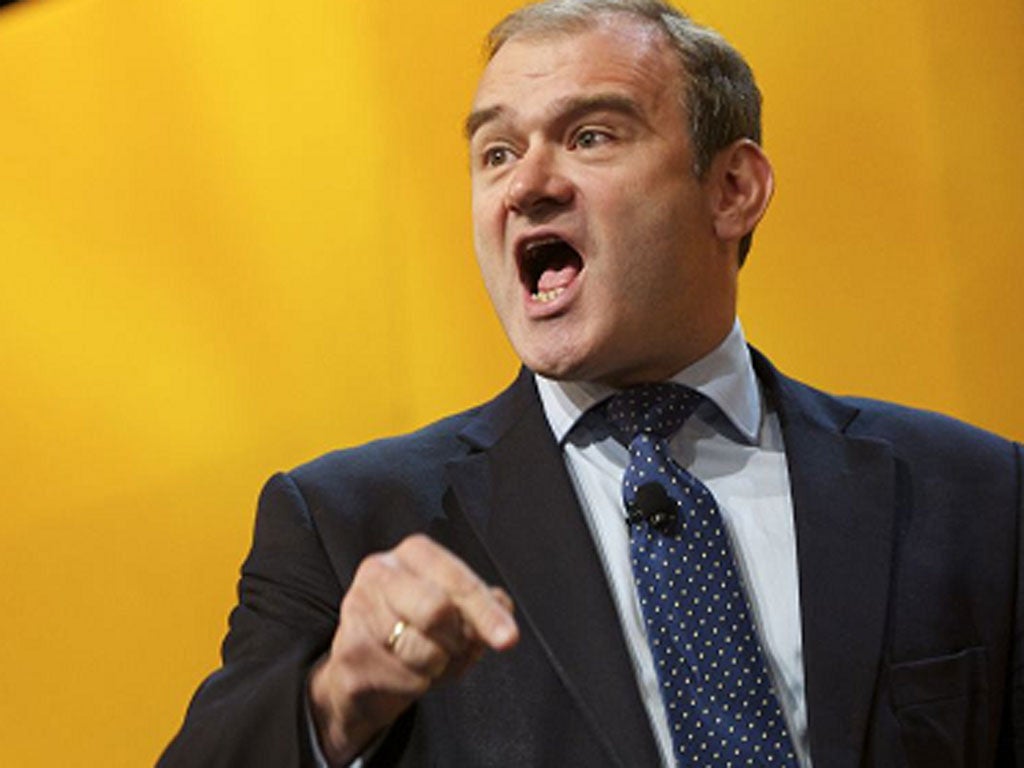Nuclear, wind and wave power chiefs in joint appeal on green energy

Your support helps us to tell the story
From reproductive rights to climate change to Big Tech, The Independent is on the ground when the story is developing. Whether it's investigating the financials of Elon Musk's pro-Trump PAC or producing our latest documentary, 'The A Word', which shines a light on the American women fighting for reproductive rights, we know how important it is to parse out the facts from the messaging.
At such a critical moment in US history, we need reporters on the ground. Your donation allows us to keep sending journalists to speak to both sides of the story.
The Independent is trusted by Americans across the entire political spectrum. And unlike many other quality news outlets, we choose not to lock Americans out of our reporting and analysis with paywalls. We believe quality journalism should be available to everyone, paid for by those who can afford it.
Your support makes all the difference.The leaders of Britain's nuclear, wind and tidal industries today put aside years of mutual suspicion and antipathy with an unprecedented joint appeal to ministers not to abandon their commitment to combat climate change.
With the Government badly split over green energy, the heads of organisations representing more than 1,000 nuclear and renewables companies have written to David Cameron, George Osborne and Ed Davey calling on them to agree a legally binding decarbonisation target for electricity generation.
The letter, seen by The Independent, marks the first time that Britain's nuclear and renewables industries have made common cause together. It also reveals their fears that climate change sceptics in Government who are pushing for a new “dash for gas” may be winning the internal arguments in Whitehall.
Significantly, the joint approach has won the backing of the environmental group Greenpeace - despite its long-standing opposition to nuclear power. It welcomed the “unity” demonstrated by the low and zero carbon industries who signed the letter and their goal to take carbon almost completely out of the electricity system by 2030.
Nick Clegg, Mr Cameron and Mr Osborne are due to discuss the Energy Bill at a meeting of the Government's decision making “quad” later this week.
A meeting due to be held last week was cancelled at the last minute after it was concluded that the two sides were still too far apart to reach agreement on the Bill. The Liberal Democrats are demanding that the Treasury effectively guarantees the returns that the nuclear and renewable industries will make by generating clear power as a way of reducing their huge upfront investment costs.
However, Mr Osborne is refusing to endorse this approach. He is said to favour encouraging more gas-fired power station to provide for Britain's near term energy needs. Although more expensive to run in the long term, they are cheaper to build now and would, he believes, help keep down energy bills.
The letter to the Government is signed by the chief executives of RenewableUK, which represents more than 600 wind and wave and tidal energy producers, the Nuclear Industry Association and the Carbon Capture and Storage Association, which represents “clean gas” generation.
It calls on ministers to quickly publish and push through the Government's Energy Bill to provide the investment certainties that companies' need. “It is essential that the Energy Bill should proceed without delay,” they warn. “Any significant slippage could result in investment being postponed, with major implications for associated new industrial development and jobs in a high-tech, high growth sector.”
It also asked ministers to back the recommendation by the Government's own Committee on Climate Change to largely decarbonise electricity generation by 2030 to ensure the UK is meets its long term emissions targets.
“If a reference were included in the Energy Bill to this objective, this would not only reassure potential investors by lowering the perceived political risks, but could also reduce the cost of capital for decarbonising the power sector. We therefore believe that this could be very important for investment going forward,” they write.
Welcoming the letter John Sauven, executive director of Greenpeace, said: “This letter shows that whilst different industries will have differing preferences for the exact mix of energy technologies, there is unity from across huge swathes of the business community on the need for a clear goal in the energy bill to take carbon almost completely out of the electricity system by 2030.
“As well as helping reduce the risks of climate change, this would help counter the overwhelming sense of confusion currently hanging over the direction of UK energy policy.”
Kirsty Alexander, director of communications at the Nuclear Industry Association said: “This joint letter is an unprecedented move by the three main low carbon energy technologies to stand united on a single issue.
“We all agree on the urgent need to largely decarbonise the power sector by 2030. This is both achievable and good for the economy. We need a diverse energy sector and we all have a part to play.”
Jennifer Webber, director of external affairs at RenewableUK added: “It is an important step that representatives of all low carbon industries are coming together to urge the Government to ensure investor confidence in maintained in the UK.
”We are saying to ministers that we need a balanced mix of technologies if we are to succeed in our goal of decarbonising electricity generation.“
A Spokesman for the Department for Energy and Climate Change said: “Our intention is to introduce this vital legislation to the House this month. We are currently considering the pros and cons of setting a decarbonisation target. Energy Secretary Edward Davey has signalled his support for having a target.”
Join our commenting forum
Join thought-provoking conversations, follow other Independent readers and see their replies
Comments